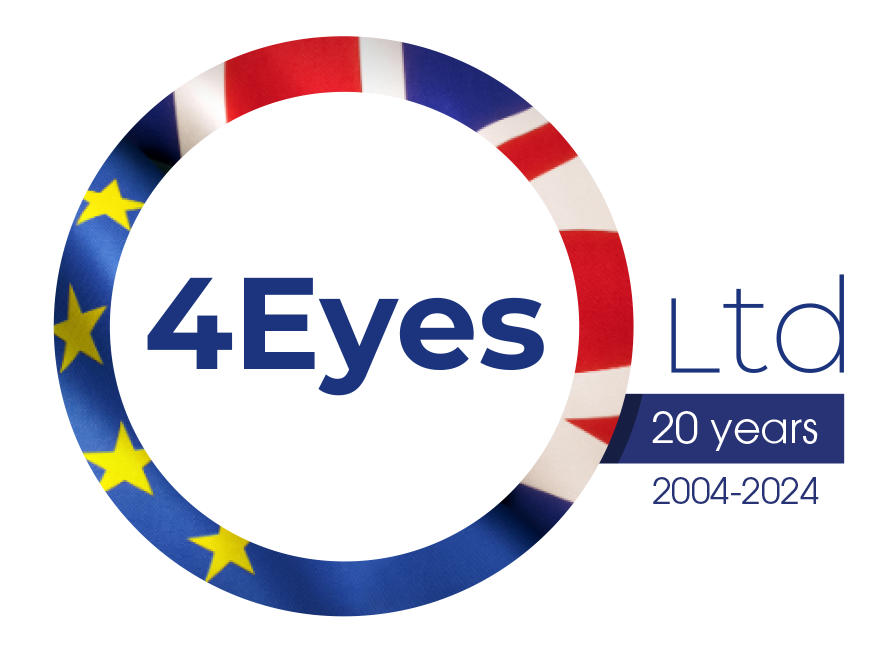The UK Customs Civil Penalty Regime
Sometimes clients fall within the civil penalties regime. If this affects you, it is essential to take appropriate professional advice. 4 Eyes Ltd has considerable experience in assisting clients to navigate disclosure and investigation of errors and to fully mitigate the extent of any potential penalties.
Sections 24 to 41 of the Finance Act 2003 (FA2003) provides for 2 types of civil penalty, which are:
Civil Evasion penalty, which is not covered in this note
Civil penalty for contraventions of customs rules relating to certain specified taxes and duties
The Act defines the relevant taxes and duties as:
Customs Duty
Community Export Duty
Community Import Duty
import VAT
Customs Duty of a preferential Tariff country
The Customs (Contravention of a Relevant Rule) Regulations 2003 (the Regulations) were made under powers conferred in the FA2003. The Regulations include a schedule.
For the majority of contraventions, HMRC will not charge a penalty unless they have issued a warning letter, for a broadly similar irregularity, within the last 2 years. If a warning letter is issued, it will detail the contravention and specifically warn that a further similar contravention within 2 years of the issue of that letter may result in a civil penalty being charged. Any further similar contravention discovered after the 2 year period has expired will usually attract a new warning letter.
In the following specific circumstances however, if appropriate, HMRC may issue a penalty notice for a first contravention:
for serious errors which have a serious detrimental effect on the revenue or physical control of the goods
where a C18 demand note has been issued for a customs debt which is £10,000 or more
where traders or third-party declarants who have been given written instructions or guidance by HMRC on how to comply with their legal obligations, fail to adhere to those instructions
where a trader fails to comply with the conditions of an authorisation
The maximum penalties provided in law are £2,500 per contravention for the more significant irregularities and £1,000 per contravention for others. “Per contravention” is understood to mean per separate instance of an error occurring, in other words per declaration.
The minimum penalty is £250, which will usually be the first penalty issued. However, this is dependant on how serious the contravention is.
HMRC will issue penalties for subsequent similar contraventions in progressively larger amounts until the maximum is reached. The normal progression will be £250, £500, £1,000, with additional steps of £2,000 and £2,500 for the higher maximum.
However, HMRC will ultimately determine the monetary amount of the penalty based on the individual circumstances of the case.
Where HMRC discover several errors for the same contravention and the total of those errors is serious, they will penalise each contraventions separately but at the same rate.
Several errors for the same contravention which do not amount to a serious error and where precisely the same mistake has been made several times, will be treated as a single error.
HMRC may increase the normal penalty where a contravention is particularly serious.
For example:
if the amount of undeclared Customs Duty or import VAT (or both) exceeds £50,000, HMRC may charge at a rate 2 steps higher than indicated — for example £1,000 as a first penalty;
where an underdeclaration (single instance) exceeds £100,000 HMRC may charge the maximum penalty irrespective of whether it is a first or subsequent penalty.
Penalties may be reduced where there are mitigating circumstances.
A serious error is a contravention that either:
potentially results in the non-payment of significant amounts of Customs Duty and import VAT, and/or
goods have been removed from customs control.
For example, in the case of either:
1. incorrect declarations, or a failure to provide declarations required by an authorisation, or
2. unauthorised incorrect use of Customs Procedure and Economic Impact (CPEI)
it is considered a “serious error” where the amount of duty and/or import VAT exceeds £10,000 on a single declaration.
A penalty will not be issued if a contravention is discovered and disclosed voluntarily, as long as you have no reason to believe that HMRC is conducting, or is about to conduct, enquiries in relation to customs duty issues..
For a disclosure to be voluntary, it must be made in writing and at a time when you had no reason to believe that enquiries were being made by HMRC in relation to any Customs Duty issues.
It is essential, if making a voluntary disclosure to HMRC, that you maintain a record of all the actions you take.
